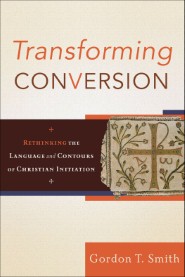If we are going to have a better picture of what conversion
is, then we need to have a clearer picture of what the end, the telos, is. Gordon Smith gives the following qualifiers for whatever the end is
as: both for individuals and corporate, Scripture based and historically
approved, distinctly theological, integrates with the whole of life, reflecting
God’s intention for creation, trans-cultural, incarnated, and ecumenical. I
believe these are good touchstones in providing a biblically centered approach
to true conversion to Jesus Christ.
“…preaching
is not about urging hearers to work harder, try harder, and do more so they are
more faithful… Preaching is about drawing the people of God into the grand
accomplishment of Christ in the cross and the resurrection so that they can
participation [sic] in this life, rest in the wonder of the gospel, and know
the transformation that comes through the ministry of the Spirit” (93).
I may have a cynical approach to
discipleship that stems from an expectation and a disappointment. The
expectation is that Christians should want to dedicate themselves to growing in
Jesus Christ, to do whatever it takes to mature. The disappointment is in finding a group of people who are seriously committed to doing so. Most would say they want to grow; few are actually taking steps to do so. I am finding the truth that I
cannot grow alone. I am also finding that I can be faithful even if I am the
only one who wants to grow. I could start a group of Christians who want more...
Smith
speaks to caveats in prioritizing the Word in worship (and de-emphasizing the
sacramental). “Protestant forms of religious experience… by emphasizing the
“Word” in worship have already leaned strongly toward inferiority...by leaning
away from the sacramental toward the subjective… Taylor calls for common faith
that is sacramental. Where the Word is emphasized the
spiritual transformation is more prominent in the lives of the hearers. So my
question is: At what
point is the faith shared and personal? At what point does the community hold
responsibility and where I do for my faith development? Or does God somehow by
the Spirit use both—my will and my faith environment? Is it a pairing of these
two “communal/sacramental” and “Word/hearing” that is transformational? Or is
the question really moot because it is GOD who uses what He wants to in
bringing about the transformation (albeit faith development) of His people?
Smith
speaks about an intentional process of being in and coming into the community
of faith. I can see the benefits of this “process” but I am still wrestling
with a couple of things. One would be how is such a thing implemented? I knew
of a man who planted a church on such a model and grew it to nearly 2,000
members. Can such a thing be implemented into a current church body? Also, what
of men like Joseph Prince, charismatic personalities who teach without much
connection to the historic faith? Do such ‘evangelists’ have a plan for
discipleship with their prophetic message? Or do they count on their being here
only so long so such a plan would take too much time? The apostle Paul
definitely gives us proof of staying in one place and discipling believers for
3-4 years with such a life-on-life model = a “teaching them to obey”
incarnational ministry. Perhaps from reading Paul's letters there is a model for discipleship which emerges there.
